Paradise is the third and final part of Dante's Divine Comedy, following the Inferno and the Purgatory. It is an allegory telling of Dante's journey through Heaven, guided by Beatrice, who symbolises theology. In the poem, Paradise is depicted as a series of concentric spheres surrounding the Earth, consisting of the Moon, Mercury, Venus, the Sun, Mars, Jupiter, Saturn, the Fixed Stars, the Primum Mobile and finally, the Empyrean. It was written in the early 14th century. Allegorically, the poem represents the soul's ascent to God. The Paradise begins at the top of Mount Purgatory, called the Earthly Paradise (i.e. the Garden of Eden), at noon on Wednesday, March 30 (or April 13), 1300, following Easter Sunday. Dante's journey through Paradise takes approximately twenty-four hours, which indicates that the entire journey of the Divine Comedy has taken one week, Thursday evening (Inferno I and II) to Thursday evening. After ascending through the sphere of fire believed to exist in the earth's upper atmosphere (Canto I), Beatrice guides Dante through the nine celestial spheres of Heaven, to the Empyrean, which is the abode of God. The nine spheres are concentric, as in the standard medieval geocentric model of cosmology, which was derived from Ptolemy. The Empyrean is non-material. As with his Purgatory, the structure of Dante's Heaven is therefore of the form 9+1=10, with one of the ten regions different in nature from the other nine. During the course of his journey, Dante meets and converses with several blessed souls. He is careful to say that these all actually live in bliss with God in the Empyrean: "But all those souls grace the Empyrean; and each of them has gentle life though some sense the Eternal Spirit more, some less." However, for Dante's benefit (and the benefit of his readers), he is "as a sign" shown various souls in planetary and stellar spheres that have some appropriate connotation.
Paradise
Autor*in:
Sprache:
Englisch
Format:

100 Meisterwerke der Weltliteratur - Klassiker die man kennen muss
Franz Kafka, Fjodor Michailowitsch Dostojewski, Rumi, Platon, Tacitus, Homer, Sigmund Freud, Friedrich Nietzsche, Oswald Spengler, Alfred Adler, Marcus Aurelius, Arthur Schopenhauer, Walt Whitman, Joseph Conrad, Robert Louis Stevenson, Karl May, Alexandre Dumas, James Fenimore Cooper, Arthur Conan Doyle, Edgar Allan Poe, Mary Shelley, O.Henry, Stefan Zweig, Charles Dickens, Jacob Grimm, Wilhelm Grimm, Hans Christian Andersen, Joseph von Eichendorff, Klaus Mann, Johann Wolfgang von Goethe, Jane Austen, Emily Brontë, Charlotte Brontë, Else Lasker-Schüler, Heinrich Heine, Herman Melville, Iwan Sergejewitsch Turgenew, Gustav Freytag, Thomas Wolfe, Jonathan Swift, Walter Scott, Nathaniel Hawthorne, Gustave Flaubert, Rainer Maria Rilke, John Galsworthy, Iwan Alexandrowitsch Gontscharow, Oscar Wilde, Lew Wallace, Voltaire, Lewis Carroll, Johanna Spyri, Mark Twain, Selma Lagerlöf, Rudyard Kipling, Jules Verne, Jack London, Miguel de Cervantes, Honoré De Balzac, Emile Zola, Guy De Maupassant, Moliere, Theodor Fontane, Nikolai Gogol, Leo Tolstoi, Anton Pawlowitsch Tschechow, Dante Alighieri, Joseph Roth, Robert Musil, E. T. Hoffmann, Heinrich Mann, Kurt Tucholsky, Heinrich von Kleist, Annette von Droste-Hülshoff, Gottfried Keller, Sophie von La Roche, Theodor Storm, William Shakespeare
book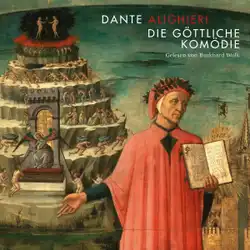
Die göttliche Komödie
Dante Alighieri
audiobookbook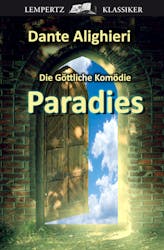
Die Göttliche Komödie - Dritter Teil: Paradies : Original-Materialien zu "Inferno" von Dan Brown
Dante Alighieri
book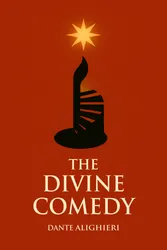
The Divine Comedy
Dante Alighieri
book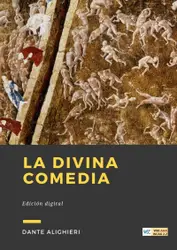
La Divina Comedia
Dante Alighieri
book
Divine Comedy
Dante Alighieri
book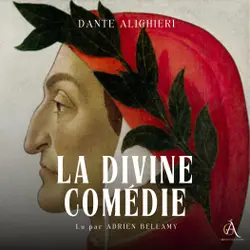
La Divine Comédie - Livre Audio
Dante Alighieri, Livres audio en français
audiobook
La Vita Nuova :
Dante Alighieri
audiobook
Inferno. Canto I :
Dante Alighieri
audiobook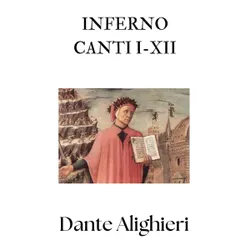
Inferno. Canti I-XII :
Dante Alighieri
audiobook
La Divina Comedia - Audiolibro
Dante Alighieri, Audiolibros Clásicos, Audiolibros de Clásicos
audiobook
50 Clásicos que debes leer antes de morir : Las Obras Inmortales de la Literatura Universal en un Solo Volumen
Dante Alighieri, Aristóteles, Jane Austen, Charles Baudelaire, Giovanni Boccaccio, Anne Brontë, C. Collodi, James Fenimore Cooper, Fedor Mikhaïlovitch Dostoïevski, Arthur Conan Doyle, Alexandre Dumas, José de Espronceda, Gustave Flaubert, Sigmund Freud, Benito Pérez Galdós, Kahlil Gibran, Johann Wolfgang Goethe, Zenith Horizon Publishing
book
